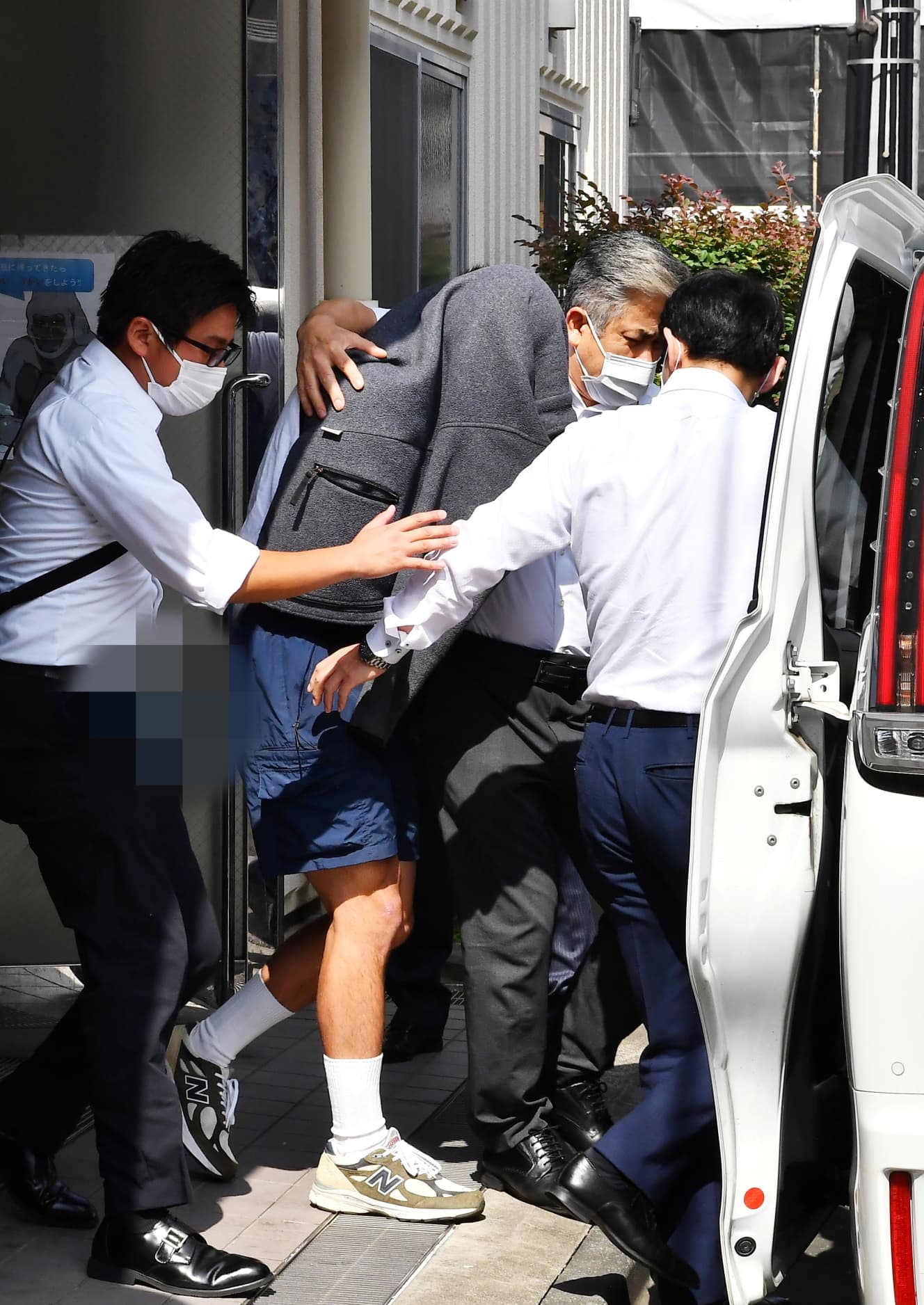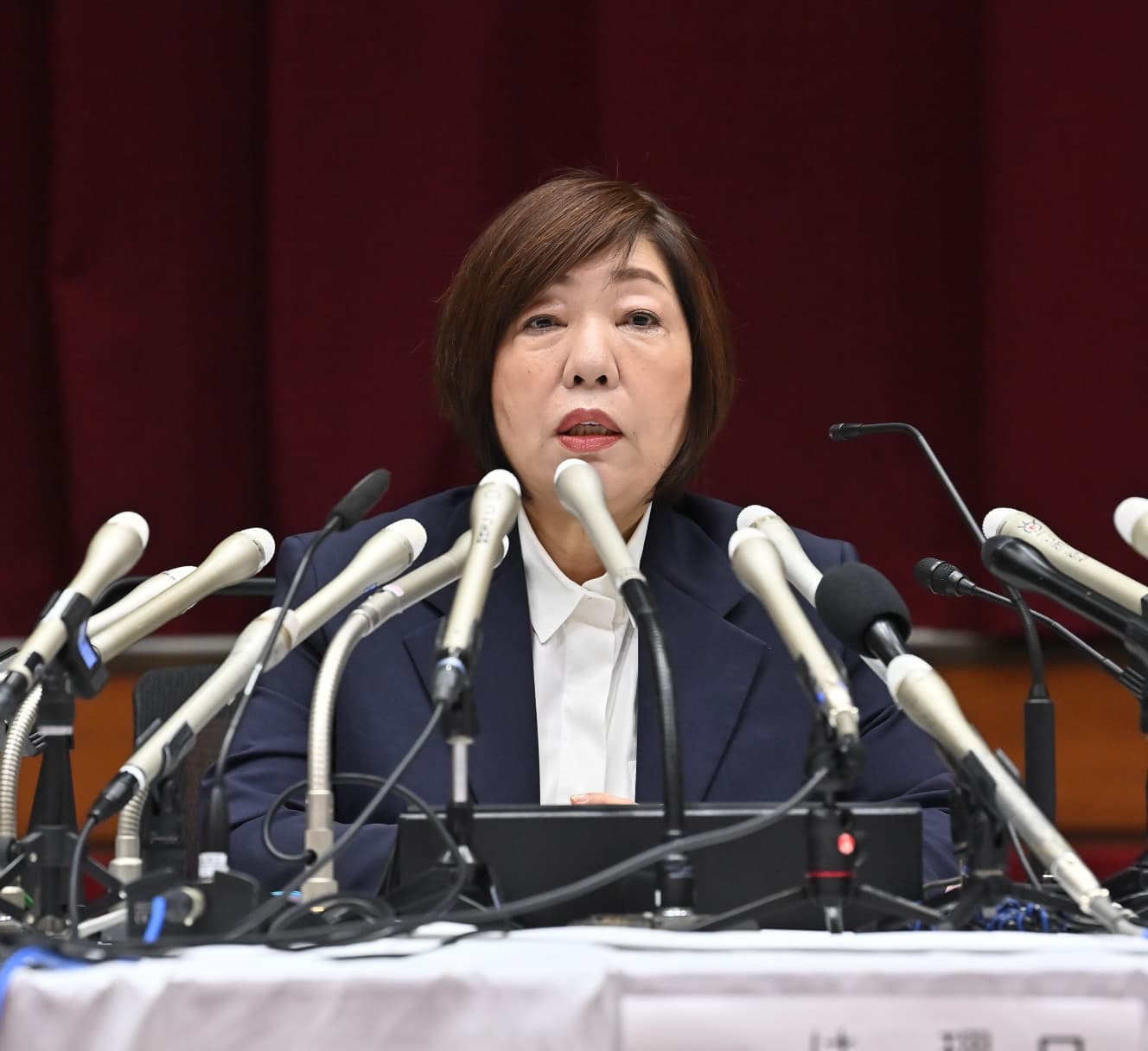Big-name politician invited to the celebration for the opening of the School of Risk Management at Nihon University, where practice resumes five days after the arrest of a football team member for possession of methamphetamine.
On August 10, the University of Tokyo football team, whose one member was arrested on suspicion of possessing methamphetamine and marijuana, was suspended from participating in the Kanto Student American Football League. The team resumed practice on the 10th, citing reasons such as, “It is not the best measure for an educational institution that wishes first and foremost for the growth of its students to hold the entire team jointly and severally responsible for an individual’s problems. The suspension was lifted only five days after the university decided to impose an indefinite suspension.
Many people on social networking sites were critical of Nihon University’s attitude, saying it was too early and too lenient.
At a press conference held at Nihon University headquarters on August 8, just two days before the suspension, Naoki Prize-winning author Mariko Hayashi, who was entrusted with the restructuring of the university, was glum.
The media report that she is a “decorated chancellor” is unfortunate and regrettable,” Hayashi said.
When asked by the press whether she had not been informed of the situation, Hayashi replied, “We were working together properly. It was bizarre to see him so emotional and furious.
However, the person who replaced Chancellor Hayashi as the main speaker at the press conference was Vice President Sawada Yasuhiro, who was in charge of students, employment, and athletic sports. Sawada is a former deputy director of the General Affairs Department of the Tokyo District Public Prosecutors Office and deputy chief public prosecutor of the Utsunomiya District Public Prosecutors Office before returning to his alma mater as a so-called “Yame-ken” (prosecutor at risk).
His sharp gaze and intimidating tone were far from that of an educator, and he used the investigator’s terminology of “stuff” and “packets” with ease on numerous occasions.
He said, “The police have authenticated the package they found on the student.”
‘You should look at the packet and not touch the inside of any other container.’
The term “buts” refers to the seized items, and the term “packet” refers to the small bags of methamphetamine and other drugs.
Vice President Sawada was present at the raid and is in a warriors’ state, perhaps taking pride in being in charge of this drug case. However, a new revelation has come to light: last year, the university consulted the Tokyo Metropolitan Police Department about a suspected marijuana use by a member of the club, but it was a personal consultation with a police officer who was an alumnus of the university, not from the police department or the drug division.
What is he? He seemed to still think he was a prosecutor. It was not nice to see him arguing with the press when they asked him questions. What in the world is going on with his crisis management?

Crisis management is a word of incomparably greater importance to Nihon University than to any other university.
Chancellor Hayashi’s predecessor, Hidetoshi Tanaka, who was arrested and convicted for tax evasion, established two new faculties in 2016: the School of Crisis Management and the School of Sports Science.
The opening celebration for the School of Crisis Management was attended by former Prime Minister Yoshiro Mori, then Lower House Representative Shizuka Kamei, an alumnus of the National Police Agency, and even former National Police Agency Commissioner Koji Kunimatsu.
Kamei, who was deeply involved in the establishment of the school, was said to have been warned by former Prime Minister Mori that his speech was “too long” and drew laughter from those in attendance .
The University of Tokyo is no exception to the problem of declining birthrates,” said Mr. Kamei. Former Chancellor Tanaka, who needed a new signboard for the future of the university’s management and as part of its 130th anniversary project, was introduced to Mr. Kamei, who advised him to “create the first crisis management department in the liberal arts, rather than just any department,” according to a media source.
Mr. Kamei spoke candidly to Shukan Bunshun (June 7, 2006 issue).
I will be your bouncer, and you should create a faculty to make bouncers. In this day and age, we must create a crisis management department.”
At the time of its establishment, the faculty was lined with professors from the bureaucracies of the police, the Public Security Intelligence Agency, and the Self-Defense Forces, and was derided as a “faculty of descent from the government. Incidentally, Vice President Sawada is currently a professor at the Faculty of Law and a part-time lecturer at the Faculty of Emergency Management.
In May 2006, two years after the establishment of the Faculty, the School of Crisis Management was not asked for advice in the “malicious tackling” incident involving a member of the football team, which resulted in a loss of trust and confidence in the university and affected its management.
In the recent drug case, too, the matter was handled under the supervision of the athletic sports department, and vertical organization was prioritized, eliminating horizontal cooperation. Despite the existence of the School of Crisis Management, the humiliating lessons of five years ago have not been learned, as the university mishandled the situation with students, parents, and the media.
Nihon University is the top university in producing police officers, with 132, followed by Kokushikan University in second place with 100, and Teikyo University in third place with 81. (’22, University News)
The “number of Japanese universities with crisis management faculties is more than one can count on one’s fingers,” said Dr. Kikuchi. It is a black joke that an incident of this magnitude has occurred twice in five years and we can’t cope with it,” said a private university official.
Chancellor Hayashi, who is the chief executive of the university, strongly opposed the “ornament” criticism, probably because his pride as a best-selling author did not allow him to do so. Although he emphasizes his love for his alma mater, in the end, he puts himself first. In the field of education, the school had a department of crisis management, but it mishandled the initial response and fell behind in avoiding secondary damage, such as the continued existence of the football team.
The confusion and chaos at Nihon University, where the Tanaka dictatorship has not yet collapsed, continues, and the road to rebuilding the university is extremely difficult.



PHOTO.: Shinji Hasuo
